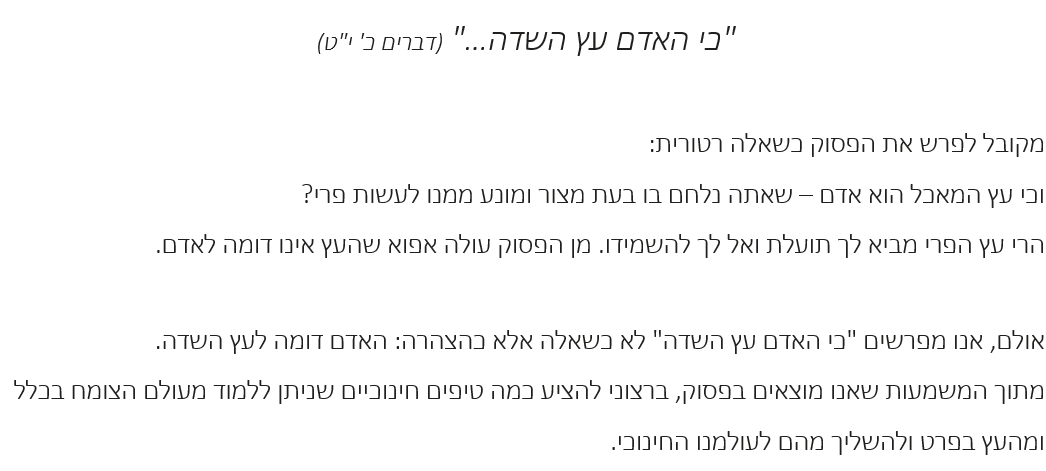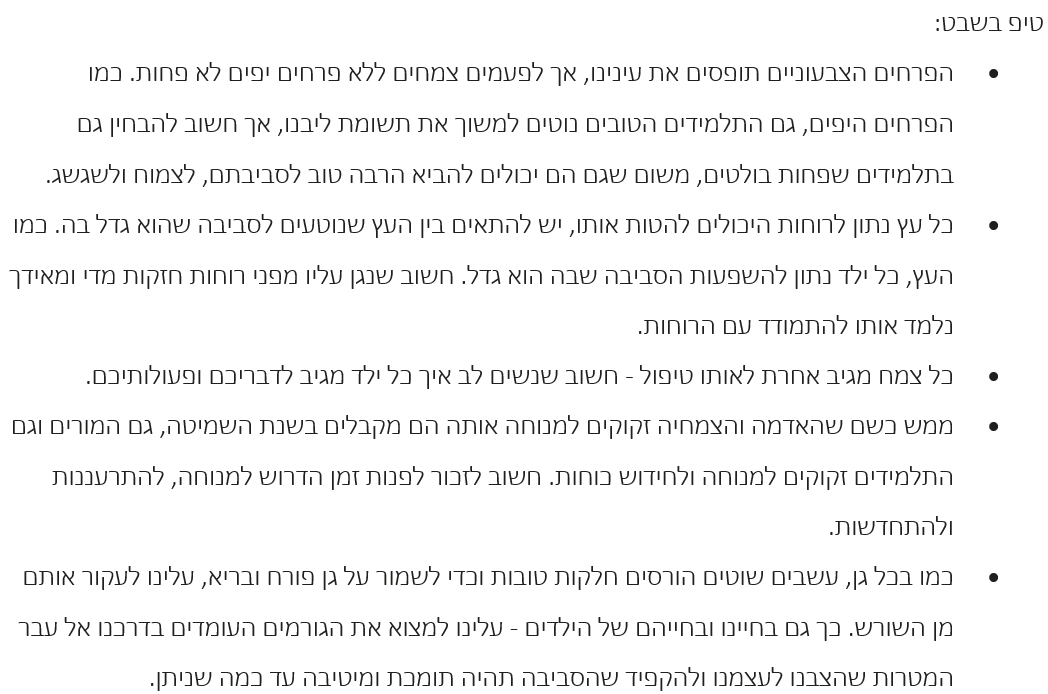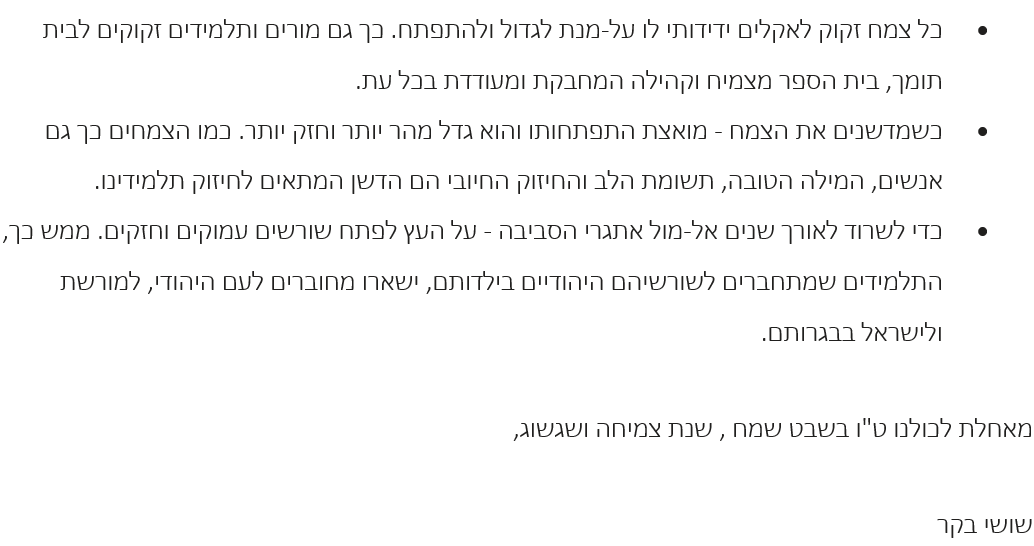Tu bshvat
Tu bshvat
“Is the tree of the field a man…” (Deuteronomy 20:19)
“כי האדם עץ השדה…” (דברים כ’ י”ט)
It is quite common to interpret this verse as a rhetorical question:
Is a tree that bears fruit a man whom you fight with during troubled times and prevent it from bearing fruit?
A tree that bears fruit is useful to you, and you shouldn’t destroy it.
From the verse we understand in that case, that the tree is not like a man.
However, we also interpret the verse “Is the tree of the field a man…” not as a question, but as a statement: a man is like the tree of the field.
From this meaning that we find in the verse, I’d like to offer a few educational tips we can take from the world of the plants in general and from the tree specifically, and project them into our educational world:
Tips for Shvat:
-
-
-
-
- The colorful flowers tend to catch our eye, but sometimes flowerless plants can be just as beautiful. Much like the beautiful flowers, excelling students tend to attract our attention, but we should remember to notice other students as well, for we should never underestimate their ability to grow and to prosper, and the value they can contribute to their peers and their environment.
-
-
-
-
-
-
-
- All trees are exposed to the winds that can bend them over. We must fit the right trees to the right environment. Much like the trees, all children are exposed to the influences of their environment they’re raised in. It is important that we will be there to protect them from too strong of a wind on one hand, and on the other to teach them how to protect themselves from the winds they will meet in the future.
-
-
-
-
-
-
-
- Each plant responds differently to the same treatment. That is why it’s important to pay special attention to how every child responds to our words and our actions.
-
-
-
-
-
-
-
- Much like the land and the plants who require their rest in the year of Shmita, teachers and students also require rest to rejuvenate. It’s important that we remember to make enough time for rest, refreshment and renewal.
-
-
-
-
-
-
-
- Like in every garden, weeds can destroy the flowerbeds, and in order to keep our garden flourishing and healthy, we must pull the weeds out by the root. Life isn’t different – in our lives and in our children’s lives we must spot things that are harmful and that stand between us and the goals we set for ourselves, and make sure our environment is supportive and beneficial as much as possible.
-
-
-
-
-
-
-
- Every plant needs a friendly climate to grow. Just so, teachers and students need a supporting home, a nurturing school and an embracing and encouraging community at all times. Fertilizing a plant accelerates its development and growth and its strength. Much like the plants, students get stronger and develop better from the sound of good words, attention and affirmations.
-
-
-
-
-
-
-
- In order to survive year after year through the challenges of the environment and climate – a tree must develop roots that are deep and strong. Just so, students who are connected to their Jewish roots during their childhood, will remain connected to the Jewish people, the Jewish heritage and Israel through adulthood.
-
-
-
Wishing us all a happy Tu B’Shvat and a year of growth and prosperity.
Shoshi Becker.







